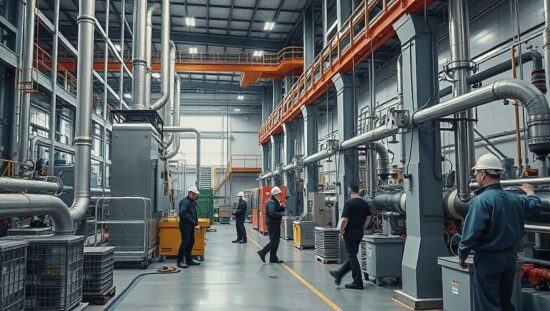Germany’s powerful chemical industry union, IGBCE, is urging a re-evaluation of the nation’s 2045 climate neutrality target and calling for adjustments to the carbon pricing system, citing concerns about industrial survival.
IGBCE chief Michael Vassiliadis, in comments to Politico, suggested aligning Germany’s target with the European Union’s 2050 goal as a potential measure, but emphasized that even this adjustment may not be enough to address the current crisis facing many businesses. He stressed the immediate need for support for companies grappling with economic pressures.
Vassiliadis argued that the current approach to carbon pricing is unsustainable, stating it is negatively impacting German businesses. He highlighted a key concern that other major global economic regions, such as Asia and the United States, are not adopting similar carbon pricing models, placing German companies at a competitive disadvantage. He explained that businesses are unable to invest in transformation or build reserves under the current circumstances.
Furthermore, he pointed to a lack of readily available technologies, infrastructure and affordable energy sources needed to achieve carbon-neutral production at a viable cost.
The IGBCE leader described a worsening situation within the industrial sector, noting production declines across key industries including chemicals, plastics, rubber, glass and paper. This contraction, he suggests, is significantly more pronounced than the downturn observed in the broader economy.





